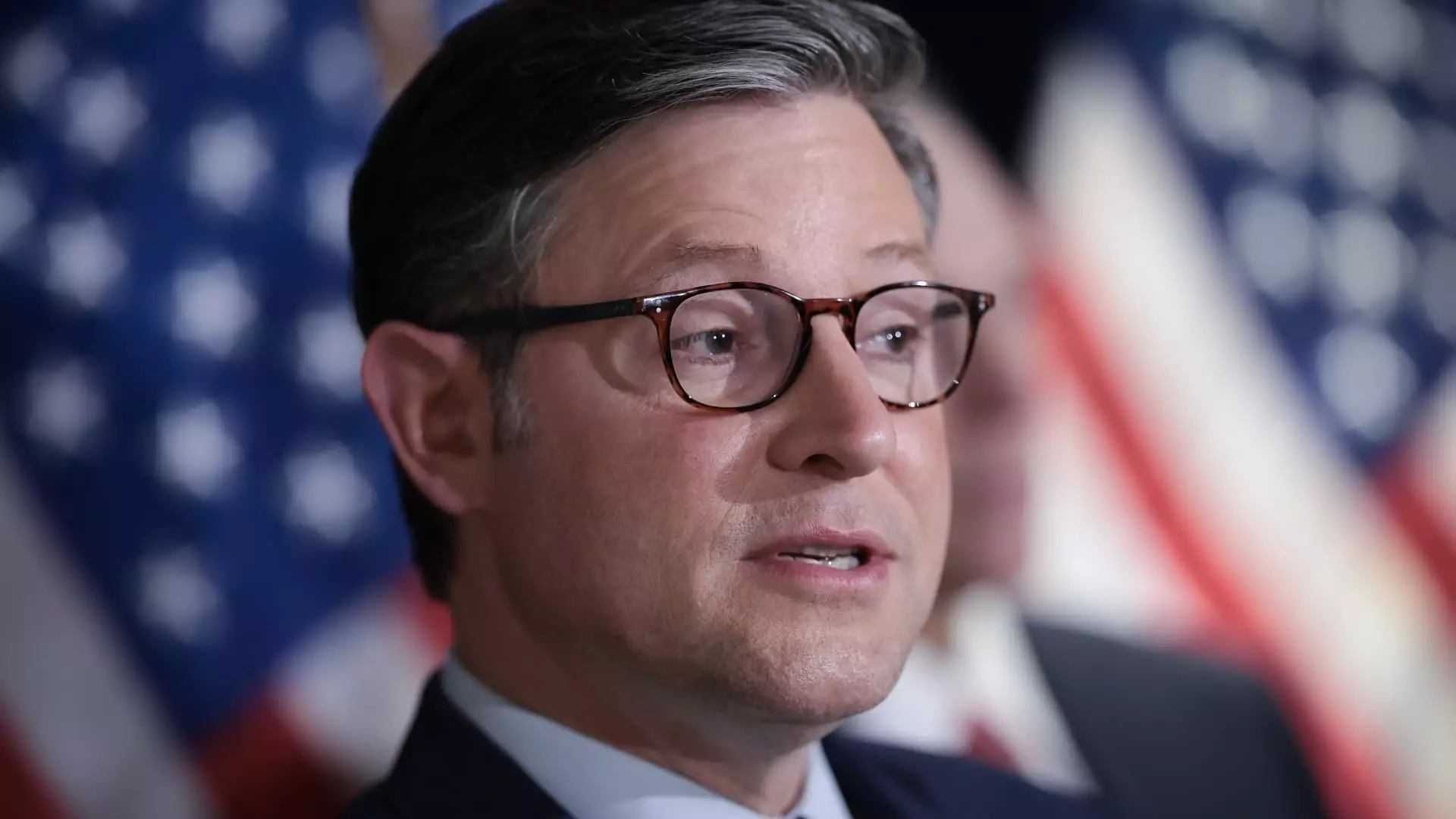The political landscape of the United States is currently facing significant scrutiny, particularly regarding the handling of legislation aimed at advancing domestic semiconductor production. Recent comments from House Speaker Mike Johnson have ignited a heated debate over the future of the bipartisan CHIPS and Science Act, a pivotal piece of legislation aimed at boosting the United States’ semiconductor capabilities and economic potential. This decision-making process encapsulates the broader challenges within the Republican Party as it balances the demands of conservative policymakers and the practical consequences of legislative repeal.
During a campaign appearance in New York, Mike Johnson’s remarks regarding a potential repeal of the CHIPS Act raised immediate concerns. Initially stating that Republicans would “probably” aim to dismantle the legislation, his comments were quickly retracted as he sought to clarify his position. Johnson indicated a preference for “streamlining” the legislation rather than full-blown repeal, suggesting that he would champion modifications instead of outright elimination. This moment reflects not only his personal stance but also the ongoing tensions within the Republican Party as they navigate bold conservative agendas while being acutely aware of the implications of diverging from bipartisan successes.
The CHIPS Act, passed with overwhelming bipartisan support, allocated $54 billion to reinvigorate the U.S. semiconductor manufacturing sector. It is credited with catalyzing a significant influx of investment into the industry, emphasizing the necessity of maintaining competitive global positioning in technology production. Johnson’s initial comments that hinted at a repeal sent shockwaves through the political arena, appealing to criticism from Democrats who underscored the risks associated with undermining a growing sector of the economy.
Johnson’s remarks triggered swift responses from Democratic leaders, including Vice President Kamala Harris, who emphasized that such a repeal would threaten thousands of jobs and significantly hamper economic growth. In an age where the economy is a foremost concern for voters across multiple demographics, comments suggesting a withdrawal from supportive policy can drastically influence public perception and electoral outcomes.
In New York specifically, the establishment of a major semiconductor manufacturing plant by Micron, which has already secured substantial grants from the CHIPS Act, underscores the real-world implications of legislative discourse. The potential loss of over 50,000 jobs would resonate deeply within the workforce, particularly in regions focusing on revitalizing manufacturing capabilities. As Democrats rally around this narrative, they aim to instill a sense of urgency among voters, particularly those who felt the pinch of post-industrial economic challenges.
This incident also reflects a broader strategic consideration for Republicans in a pivotal election cycle. Johnson, tasked with maintaining party unity while campaigning for vulnerable colleagues, faces the dual challenge of aligning with former President Trump’s more controversial positions while adhering to the economic interests represented by the CHIPS Act. His attempt to reel back comments indicative of a party shift towards more extreme positions is emblematic of the broader strategy required in a landscape where public sentiment can rapidly evolve.
Rep. Brandon Williams, representing a district poised to benefit from the semiconductor industry, found himself at the center of this controversy as he sought clarity from Johnson regarding the future of the CHIPS Act. Williams’ assertion that Johnson misheard the reporter’s question illustrates the delicate balance that Republican leaders must maintain as they navigate intra-party expectations and external voter concerns. The incident serves as a reminder that political missteps can have immediate ramifications, particularly in contexts where coalition building and voter outreach are paramount.
The ongoing discussion surrounding the CHIPS Act represents a critical crossroads for the Republican Party as it contemplates its policies and ideological priorities. The potential for economic expansion stemming from semiconductor manufacturing offers a tantalizing outcome that may necessitate a rethinking of far-right positions on government legislation. As the dialogue continues, the significance of these legislative frameworks will become increasingly evident in shaping both political fortunes and the everyday lives of American workers.
Consequently, how Republicans, led by figures like Johnson, reshape their strategies regarding bipartisan successes will define their operational ethos. The effectiveness of their approach in balancing conservatism with economic pragmatism will undoubtedly play a significant role in the upcoming electoral contests, exacerbating the need for thoughtful deliberation over populist inclinations shining through in their agendas.


Leave a Reply